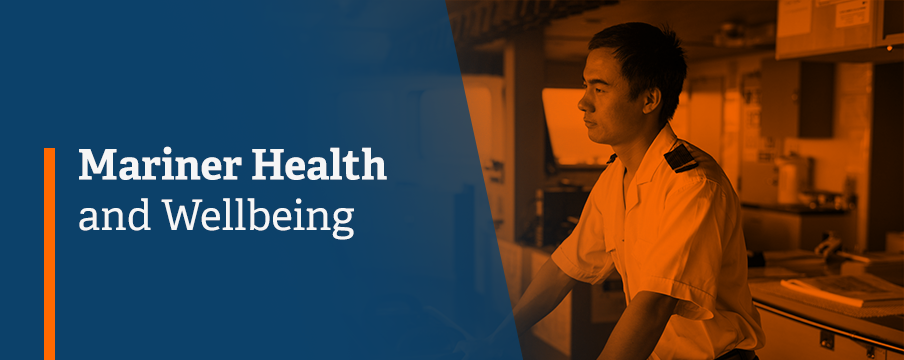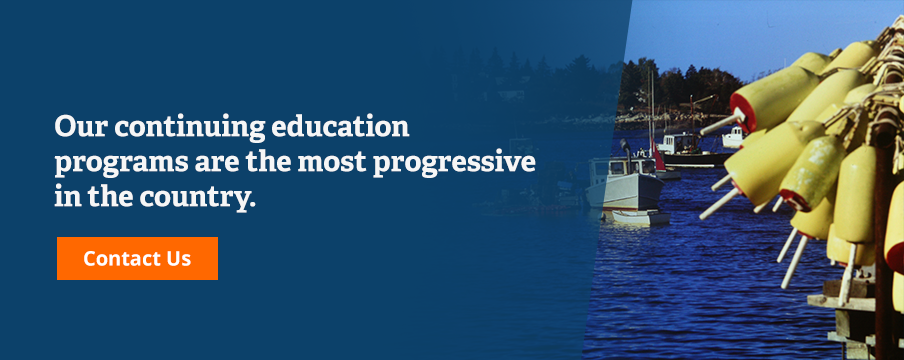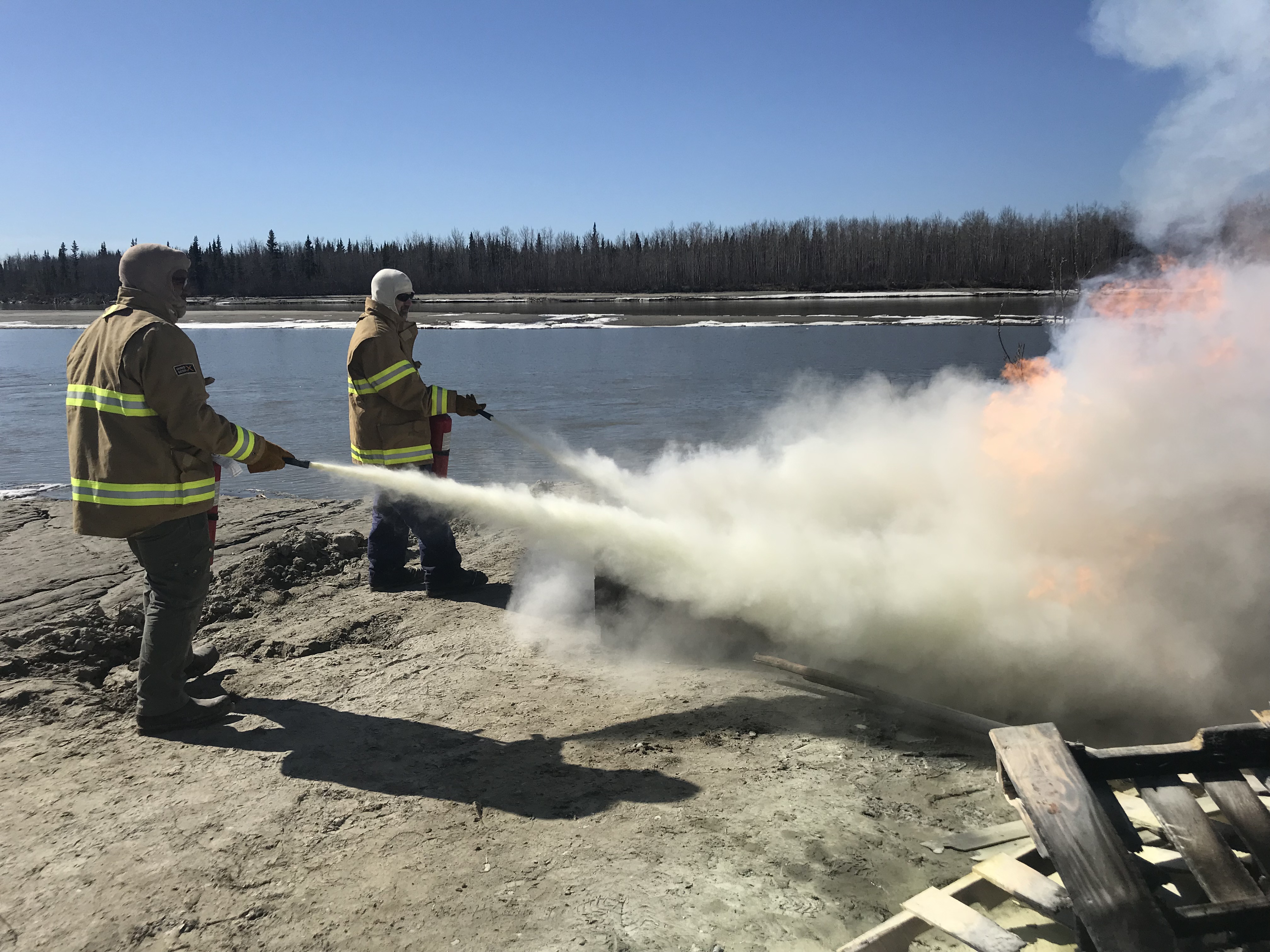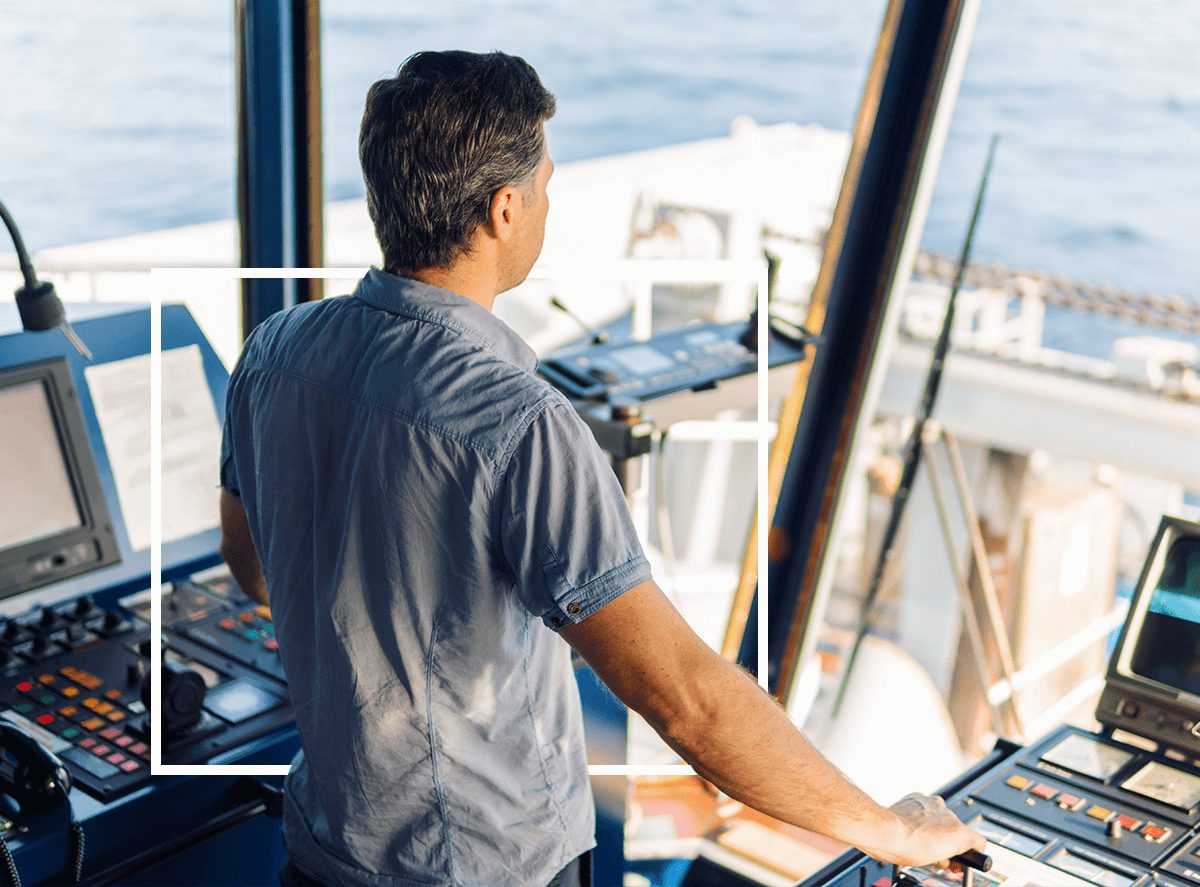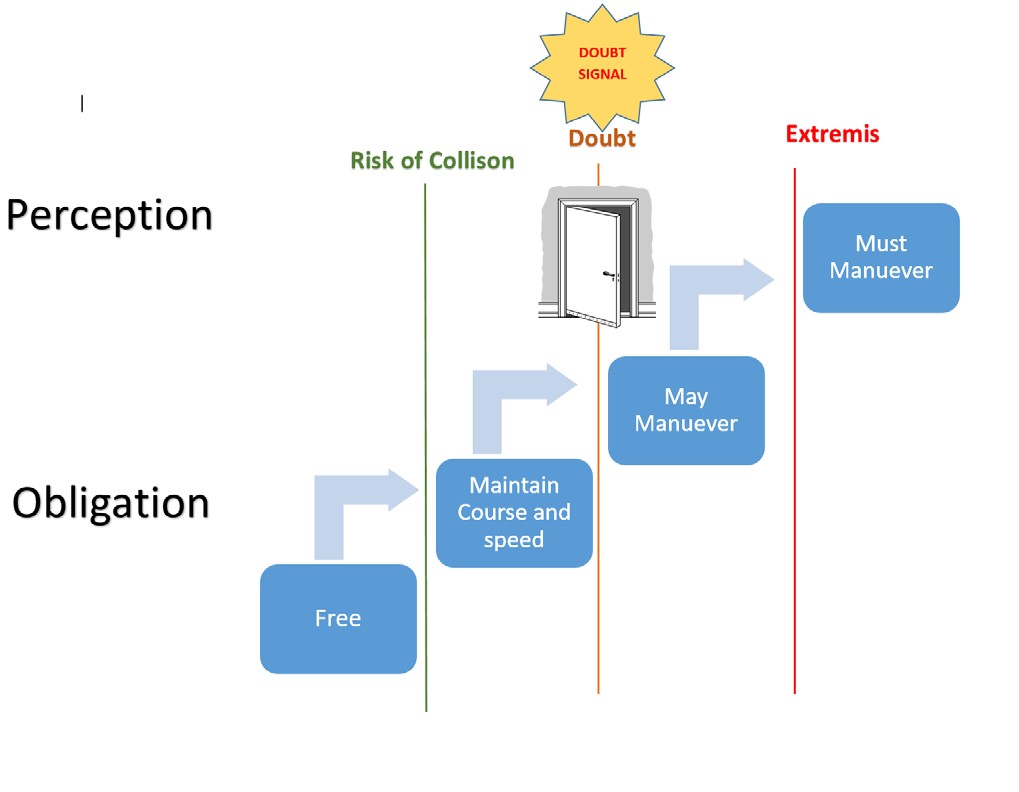There are plenty of reasons to choose a career in the maritime industry. The non-traditional schedule with longer concentrations of work and time off, for instance, can be very appealing to some. A life at sea also allows you to see the world and get paid to do it. While life as a mariner can be extremely rewarding, it isn’t without its challenges.
The nature of seafaring makes it a demanding job — physically, mentally and emotionally. Unlike most conventional careers, being a mariner means immersing yourself in the job and leaving behind your home life for extended periods of time. This brings with it unique challenges that workers in other fields may not face.
In this guide, we’ll discuss the health risks mariners experience, both in terms of physical, mental and emotional health, and discuss the best ways to mitigate these risks so mariners can enjoy a healthy and fulfilling life at sea.
Throughout this article, we’ll cover everything you’ll want to know about the Mariner Health and Wellbeing:
- Why You Should Invest in Improving Mariner Health and Wellbeing
- The Physical Health Challenges That Come With Seafaring
- How to Improve Physical Health at Sea
- The Mental and Emotional Health Challenges That Come With Seafaring
- How to Improve Mental and Emotional Health at Sea
- Sign Up for the MITAGS Newsletter to Learn More About the Maritime Industry
Why You Should Invest in Improving Mariner Health and Wellbeing
Taking positive steps toward improving your mariners’ health starts with understanding why this task is so important. After all, no company wants to invest energy and money into an endeavor that ultimately won’t matter. Improving the health and wellness of your employees is well worth it for a number of reasons. By investing in your mariners’ wellness, you can:
- Abide by regulations: If your current practices are resulting in serious health problems or other types of harm for your employees, you may be violating regulations, such as the standards set by the Occupational Safety and Health Administration (OSHA). These violations can result in serious fines. It’s vital to make the necessary changes to ensure you meet all the relevant health and safety standards for your employees.
- Set employees up for success: Companies should do their best to help employees fulfill their fullest potential. Healthier employees are likely to be more effective in their jobs. Employees dealing with physical health problems or mental health problems may underperform, while healthy, happy employees will have the motivation and capacity to perform well.
- Establish goodwill with employees: Goodwill is important in an employer-employee relationship. You want your mariners to feel valued and cared for, and one of the best ways you can do that is by letting them know you care about their physical health and mental and emotional wellbeing.
- Attract new talent: Improving the quality of life for mariners will also likely attract more people to the industry. Workers today tend to care deeply about the effect a job will have on their physical health, mental health and emotional fulfillment. For mariners already in the field, they will notice working with your company means they can enjoy some valuable perks.
The Physical Health Challenges That Come With Seafaring
Any job can involve some occupational hazards, but seafaring is known for being a particularly hazardous occupation. Seafaring comes with several potentially serious physical health risks. Some are directly linked to the activities a mariner performs or their physical environment on the job, while others are linked to typical lifestyle choices, such as smoking.
Some documented physical health risks for seafarers include:
- Cardiovascular disease: Acute cardiovascular disease (CVD) is the leading cause of death for mariners. Though seafarers’ risk for CVD is comparable to the general population’s, it is notable since many seafarers must meet health requirements to qualify for the profession. Additionally, research has shown that cardiac events on ships often have a worse outcome because the person attempting to resuscitate the patient is not a medical professional and does not act swiftly enough.
- Fatigue: High job demands, long working hours and minimal crews can cause a mariner to become fatigued. When a mariner is tired, they are more likely to incur injuries.
- Communicable diseases: With international travel comes an increased risk of contracting communicable diseases you may otherwise be able to avoid, such as malaria, cholera, yellow fever, tuberculosis and more.
- Cancer: Mariners experience an increased risk of occupational cancer because of exposure to hazardous substances and UV-light from the sun. They can also be more prone to cancer because of lifestyle factors, including alcohol, smoking and poor diet.
- Hand-arm vibration syndrome: Prolonged exposure power tools can cause a mariner to develop hand-arm vibration syndrome (HAVS), a problem that can first cause discomfort and eventually cause a permanent disability if untreated.
- Musculoskeletal Disorder: With many mariners working 12 hours at a time or six hours on, six hours off, they may neglect to maintain their musculoskeletal health by being physically active on their own time, leading to musculoskeletal disorders.
How to Improve Physical Health at Sea
While there is no instant solution that will solve all mariners’ potential health problems, there are several steps employers can take to improve the physical health of their employees and steps mariners can take to keep themselves healthy. For employers, some steps toward improving mariners’ physical health include:
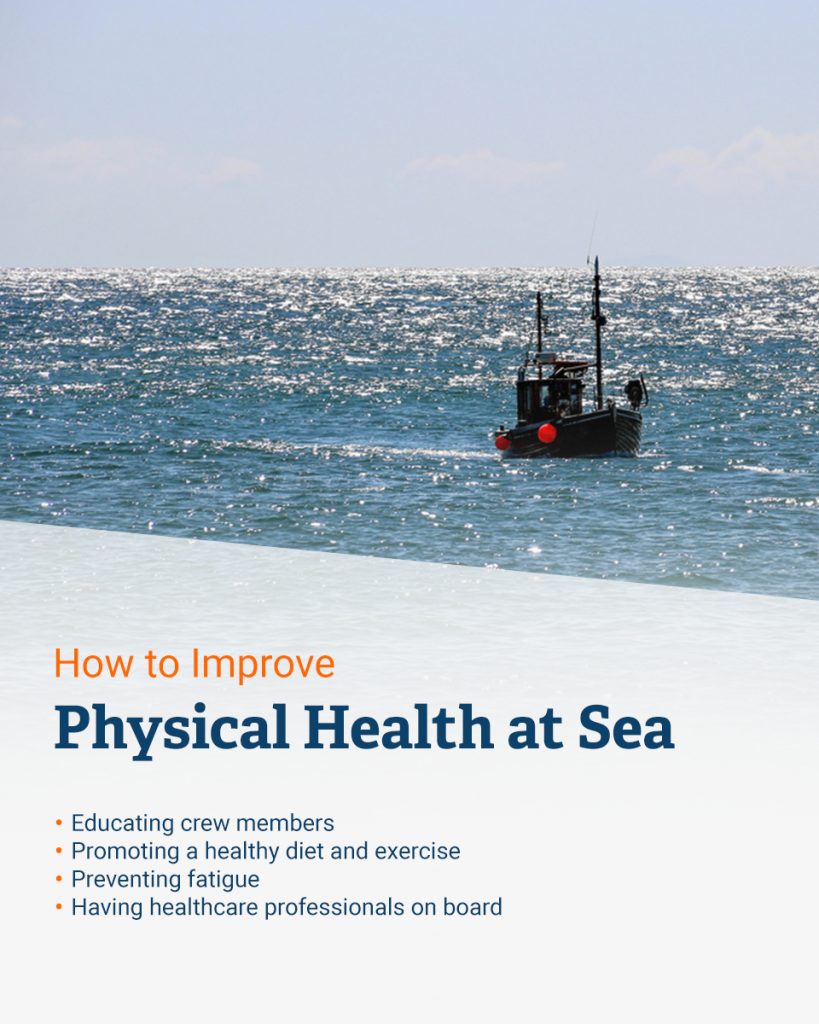
- Educating crew members: One of the biggest ways employers can make a difference is by putting time, effort and finances into educating their employees about the occupational risks they will face and how to combat them. Equip them with practical medical advice to help them lead a healthy lifestyle while at sea, including an understanding of proper diet, exercise and other lifestyle choices.
- Promoting a healthy diet and exercise: It’s one thing to tell crew members what they should do to be healthy, but if employers really want to set them up for success, they should also put their priorities into action. This means making sure mariners have nutritious meal options on board and exercise equipment available to help them stay active.
- Preventing fatigue: Employers should look for ways to prevent crew members from becoming fatigued. By working to prevent fatigue, employers can help crew members do their jobs more effectively and avoid health complications or injuries.
- Having healthcare professionals on board: Another practical way employers can protect their workers is by making sure there are adequately trained medical staff on board to provide expert medical care as needed. This option is only practical on large cruise ships, and other specialized operations. An alternative is to have one or more seafarers with current Medical Person-In-Charge training. This training teaches vital skills in diagnostic, and emergency medical procedures. The training, backed up with a 24-hr medical call-in service, will deliver superior outcomes.
However, it isn’t only up to employers to promote a healthy lifestyle for their mariners. Mariners themselves can also take an active role in improving their health by:
- Educating themselves: Mariners should educate themselves on how to live a healthy lifestyle at sea. In addition to independent study,mariners can take courses, such as the Fatigue, Sleep & Medications seminar or other medical courses at the Maritime Institute of Technology and Graduate Studies (MITAGS).
- Maintaining a healthy diet: Eating healthy is an excellent way to reduce mariners’ chances of developing certain health problems like cardiovascular disease. A nutritious diet can also give mariners’ immune system more fighting power against diseases and other problems they might encounter.
- Exercising daily: Daily exercise can help mariners maintain better health overall. An active lifestyle can help reduce the chance of cardiovascular disease and musculoskeletal problems. Exercising can also help mariners stay alert during their shifts and sleep better when they are off-duty, so they can avoid fatigue and the problems that come with it.
- Avoiding health risks: Mariners can also do their part to stay healthy by choosing to avoid health risks that can cause serious problems like CVD. This may mean making lifestyle changes, such as quitting smoking or reducing alcohol consumption.
The Mental and Emotional Health Challenges That Come With Seafaring
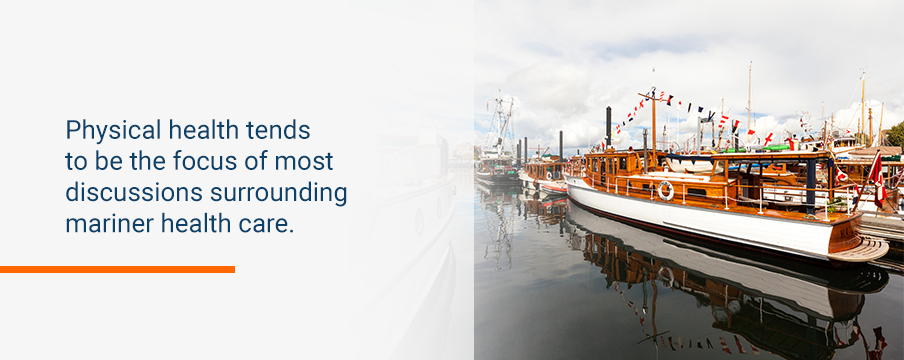
Physical health tends to be the focus of most discussions surrounding mariner health care. However, mariners can also experience mental health issues and emotional challenges at sea that can have just as serious an effect on their lives as the physical challenges can. Common mental and emotional problems mariners experience include:
- Stress: Stress can be a major problem in many occupations, and this is certainly the case for the maritime industry. A demanding workload, long working hours and more can cause mariners to experience occupational stress. They may also feel stressed over issues at home they cannot help with because they are away. Stress may be a psychological issue, but it can easily cause physical problems, as well.
- Loneliness: Being separated from home and loved ones for extended periods of time and often being unable to communicate with people back home makes seafaring an occupation that can easily include feelings of loneliness. If a mariner doesn’t have close connections with coworkers on board, they can become socially isolated and feel they have no one to talk to.
- Depression: Depression is also a serious issue for many mariners. In the general population, about 1.2 percent to two percent of deaths are suicides, but approximately 5.9 percent of deaths among mariners are suicides. The risk of suicide among mariners illustrates just how critical mental health is, in addition to physical health.
How to Improve Mental and Emotional Health at Sea
Considering the mental and emotional challenges of life at sea can be alarming. Fortunately, there are some active steps both employers and mariners can take to make a difference. Some of the ways employers can help mariners maintain better emotional and mental health are by:
- Facilitating social interaction: Since many mariners deal with loneliness and social isolation, employers should look for ways to create a stronger sense of community on board. This could mean facilitating social events to help crew members get to know each other better, so they can form tighter bonds and find fulfillment in each other’s company.
As with physical health, mariners can also take an active role in their own mental and emotional health. Employers can help by making sure their crew members know to prioritize the following things while they’re at sea:
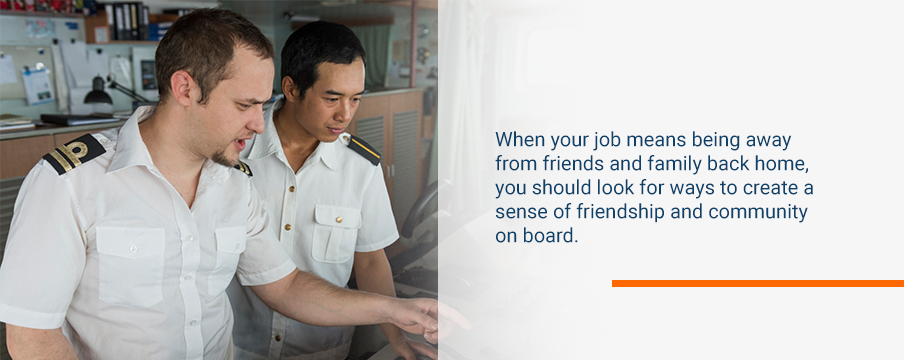
- Socializing with coworkers:T ake advantage of any opportunities you have to spend time with other crew members. Employees often have a cynical view of team building activities or other social interactions with coworkers, but when your job means being away from friends and family back home, you should look for ways to create a sense of friendship and community on board.
- Communicating with loved ones: Communicating with loved ones on land is one of the best ways you can maintain your existing support networks and avoid loneliness at sea. Make an effort to communicate in whatever way is logistically possible with parents, siblings, roommates, significant others, friends or anyone you miss when you’re away.
- Engaging in mental stimulation activities: One way to maintain your mental health is by making sure you stimulate your brain in positive ways. When you’re feeling stressed or bogged down by work, use part of your free time to engage in an activity that engrosses your attention and exercises your brain, such as reading or playing sudoku.
Sign Up for the MITAGS Newsletter to Learn More About the Maritime Industry
The maritime industry can be a challenging one to work in, but it can also make for an exciting and rewarding career. The Maritime Institute of Technology and Graduate Studies is committed to providing programs, courses and resources to educate and equip those in the maritime industry, so they can enhance their skills and lead a healthier lifestyle at sea. Our continuing education programs are the most progressive in the country. If you want to learn more about the maritime industry, check out the other articles featured on our blog and sign up for our newsletter today.
MITAGS is the primary training center for the International Organization of Masters, Mates & Pilots (MM&P)

